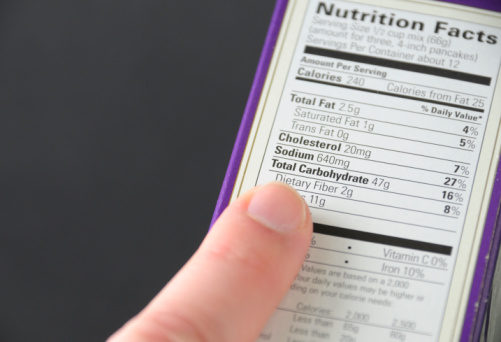Before the ballots open on California Prop. 37 on November 6, there are numerous factors and perspectives with which to be familiar. The fate of the proposition that would mandate labeling in the state on all food products containing Genetically Modified Organisms (GMOs) is in the hands of voters. The result will likely carry policy implications for the rest of the country, and has the potential to make an immediate impact on the entire food industry due to the size California’s consumer base.
First, there is the fundraising and marketing battle that has taken place between proponents and opponents of GMO labeling, which will intensify as Election Day approaches. The California Secretary of State’s office keeps track of the contributions made for and against initiatives like Prop. 37. The leading givers among those in favor of the measure include manufacturers like Nature’s Path and Dr. Bronner’s Magic Soaps, the Organic Consumers Fund and the Web site Mercola.com. At over $2 million through the quarterly period which concluded at the end of June, these donators had an early lead on the proposition’s opponents, which include PepsiCo, Kellogg Company and Nestlé USA. These donors amassed over $1 million to use in the messaging campaign that will be aimed at convincing voters that GMOs need not be labeled.
But it appears as if the proponents of GMO labeling have spent at a faster pace than their opponents, and may be poised to run out of cash sooner than some of the large companies mentioned, which certainly have deeper pockets and should be positioned to make a late push prior to the polls opening. Much of the spending on the “Yes” side of things was used to drum up support for the petition to place Prop. 37 on the ballot in the first place, and more recent updates on individual donations show Big Ag and Big Food far outspending Big Organic. The Grocery Manufacturers Association, which represents some of the large manufacturers named above as well as the primary source of genetically modified crop seeds in Monsanto Company, has in fact termed defeating Prop. 37 its “highest priority for the year 2012.
There are questions regarding the impact of the proposition itself, should it pass, beyond the requirement that company’s label foods with genetically modified ingredients. One involves the term “natural,” and whether food products that currently use this term in their marketing would be unfairly barred from doing so. The proposition dictates that certain foods may not be labeled as “natural” in any misleading way, and one major restricted category is processed food, which is defined in the language of the proposition as any that as undergone processing such as “canning, smoking, pressing, cooking, freezing, dehydration, fermentation or milling.”
Critics, including the campaign called “No on 37,” claim that this language can be legally construed to apply to all foods, regardless of if they are free of GMOs or not. This would constitute a definition of “natural” that even the U.S. Food and Drug Administration has not yet undertaken. Proponents argue that this is a false interpretation of the proposed statute, one not supported by California's attorney general, and that only genetically modified processed foods would be affected.
A related concern involves the potential for an influx of lawsuits, were the proposition to pass. Lawyers, critics argue, may seize the opportunity to sue manufacturers and others in the supply chain on behalf of consumers, with the premise that specific unlabeled foods may contain GMOs.
The Legislative Analyst assigned to summarize the effects of the proposition estimates it will cost the state’s Department of Health anywhere from several hundred thousand dollars to over $1 million annually to enforce the new regulations. The implications for individual retailers, meanwhile, involve responsibility for labeling product bins with proper messaging related to GMOs. For example, GMO-containing products without labels or individual packaging such as some fruits and vegetables would be required to carry the words “Genetically Engineered” on the shelf of bin where the item is displayed for sale.
The labeling of genetically modified raw foods and food products is a concept already taken up in dozens of other countries, including the European Union. In the U.S., public opinion appears to be overwhelmingly in favor of GMO labeling, with a research poll from earlier this year pegging the pro-labeling camp at over 90% of consumers, with 81% strongly in favor of it.
Published in WholeFoods Magazine, October 2012 (online 8/28/12, updated 10/19/12)










